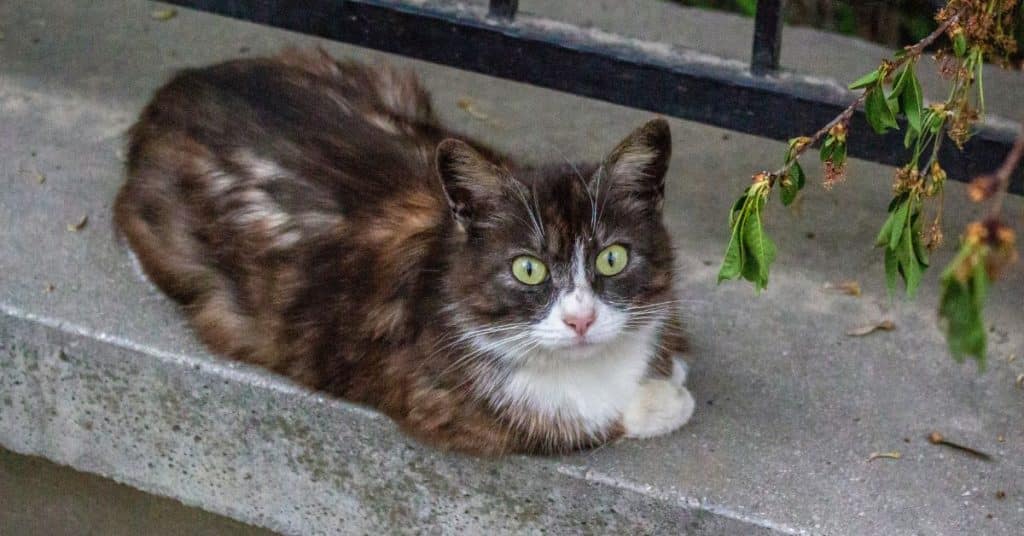Cats need vitamin A for their eyesight. Vitamin A is a fat-soluble vitamin that helps the body maintain normal vision and skin health. Cats cannot synthesize vitamin A alone and must get it from their food sources.
But what does Vitamin A do for a cat? This article contains all the answers to your questions regarding Vitamin A and how they work for your fur babies. It will also give you information about Vitamin A deficiency and how to prevent and treat them!
Let’s start!
The Nutritional Needs of a Cat
As opposed to dogs, who are omnivores (they eat plant and animal food), cats are carnivores and have a unique metabolism. It is not appropriate to feed cats vegetarian diets since cats have special dietary requirements. Therefore they should always be provided with animal protein (meat) in their food. It does not mean they cannot digest nutrients from plants. The consumption of high amounts of meat poses a threat to them.
Cats require some vitamins, such as niacin, in higher amounts than other animals like dogs. Plant compounds like carrots and green leafy vegetables (carotenoids) can provide animals with vitamin A in their bodies. As cats’ enzymes for making vitamin A are not very active, pre-made vitamin A must be included in their diets.
Furthermore, sunlight usually is essential for the production of vitamin D in the body of animals, including humans. Vitamin D will not be made by cats (or dogs) in their bodies, so they must always eat it. Since cats cannot use the plant form of vitamin D as efficiently as dogs, it is recommended that cat diets include the animal form of vitamin D (vitamin D3) or adjust D2 levels to compensate for its low efficiency. Since cats’ bodies produce limited amounts of niacin, feline diets should also be higher in niacin than other animal diets.
Cats and Vitamin A
Vitamin A must be part of its daily diet for your cat to maintain optimal health. It helps maintain healthy skin and prevents kidney disease. All body tissues require vitamin A, including the skin, coat, muscles, and nervous system. When a cat does not consume enough Vitamin A, their skin and coat will appear unhealthy, and it can also suffer from night blindness. Other symptoms include your cat being weak and its muscles. Growing kittens require vitamin A for growth, muscle, and neurological development, making it especially important to pregnant cats.
Cats need a moderate amount of vitamin A in their diet. Providing your cat with a vitamin A-rich diet may cause hypervitaminosis A and liver damage. Excessive amounts of vitamin A can impact the cat’s bone metabolism, leading to excessive bone growth.
You should consult a veterinarian if you notice behavioral changes in your cat after ingesting a lot of vitamin A-rich foods, such as the liver. To protect your pet, understand the symptoms and causes of Vitamin A poisoning.
Toxicity of Vitamin A in Cats
A healthy cat’s night vision and skin depend on vitamin A. Cats can benefit from its immune-boosting properties and its antioxidant properties, which help protect them from pollution, cancer development, and other disorders. However, It can also be toxic if taken in excessive amounts.
Vitamin A toxicity, also known as vitamin A poisoning, is typically caused by consuming high doses of vitamin A-rich foods or supplements. Though it is most common in cats aged 2 – 9, it may happen at any age.
Symptoms include lethargy, appetite loss, weight loss, lameness, rough hair coat, constipation, abnormal sitting posture (e.g., raising front limbs), and skin allergy around the neck. A vitamin A-enriched diet (raw liver) or excess vitamin A supplementation (cod liver oil) can cause the condition.
Diagnosis
Your veterinarian will ask about your cat’s diet, supplement regimen (if any), and symptoms. Then they will perform a complete physical examination. Besides routine blood work, your veterinarian will also order a biochemistry profile, urinalysis, and a complete blood count. Test results are usually average.
It is possible to see an increase in white blood cells (WBCs) in some cats, especially neutrophils. Additionally, a biochemistry profile may reveal abnormally high blood glucose levels. X-rays will also be taken of the neck region to evaluate the vertebrae (cervical vertebrae) in the area and other areas- new bone formation is a common sign of vitamin A toxicity.
Your veterinarian may, however, order blood tests to determine the level of vitamin A in your pet as part of the diagnostic process.

Treatment
Generally, cats begin to recover as soon as the source of vitamin A toxicity is no longer consumed, whether from raw liver or supplements. Veterinarians would advise you on the best diet for your cat, and they might possibly prescribe painkillers to alleviate the pain.
Prevention
You should consult your veterinarian before changing your pet’s diet or starting a vitamin A supplement regimen to prevent cat toxicity. Further, you should not allow anyone else to feed your cat without permission.
Recovery
In most cases, the vet will recommend you return for a follow-up visit within a week or two to see if your cat’s condition has improved.
Cat owners should know how to prevent vitamin A poisoning after being treated. You should not give your cat dietary supplements unless your veterinarian recommends them. You should not feed your cat supplements that contain high levels of vitamin A since your cat might get them poisoning from them.
The liver should also be given sparingly to your cat. Consult your veterinarian about how often your cat should have liver. The liver is a prevalent food for cats, so they may refuse to eat other foods after receiving them. Your veterinarian may recommend removing it from your cat’s diet.
Conclusion
Vitamin A is essential to a cat’s diet but should be consumed in moderation. However, many cats, especially those fed a diet high in Vitamin A, can develop hypervitaminosis A or Vitamin A poisoning, which can result in serious health issues. This should be treated, and fur parents should learn how to prevent it from happening! Talking to your vet is highly beneficial, so ensure communication between you and your cat’s vet.
Frequently Asked Questions
Is it okay to give vitamin A to my cat?
Yes, definitely! Whenever you make changes to your cat’s diet or lifestyle, it is essential to consult with a veterinarian first. You can consult with a veterinarian before using a health supplement, as nutrition is a particularly nuanced topic.
Is it a good idea to give vitamins to my cat?
They can be harmful if you don’t get your veterinarian’s approval before giving your cat supplements. Clean, fresh water should be available at all times for cats. In addition to dry cat foods, semi-moist and canned cat foods are also available.
When a cat consumes too much vitamin A, what happens?
In most cases, the over-supplementation of vitamin A causes a delay in the onset of symptoms. Vitamin A poisoning can cause poor hair coats, rough skin, weakness, weight loss, constipation, excessive bone growth, and pain when walking or moving.
Does my cat have a vitamin deficiency?
It is essential to check for symptoms. Her coat and skin will appear unhealthy, her body will become weak, and she may become blind at night if she suffers from vitamin A deficiency.
How much vitamin A can a cat have?
It is significant for pregnant females and kittens because growing kittens need vitamin A to grow, develop their muscles, and develop their neurological systems. According to the Association of American Feed Control Officials (AAFCO), cat food for adults should contain 9000 IU of Vitamin A per kilogram.
